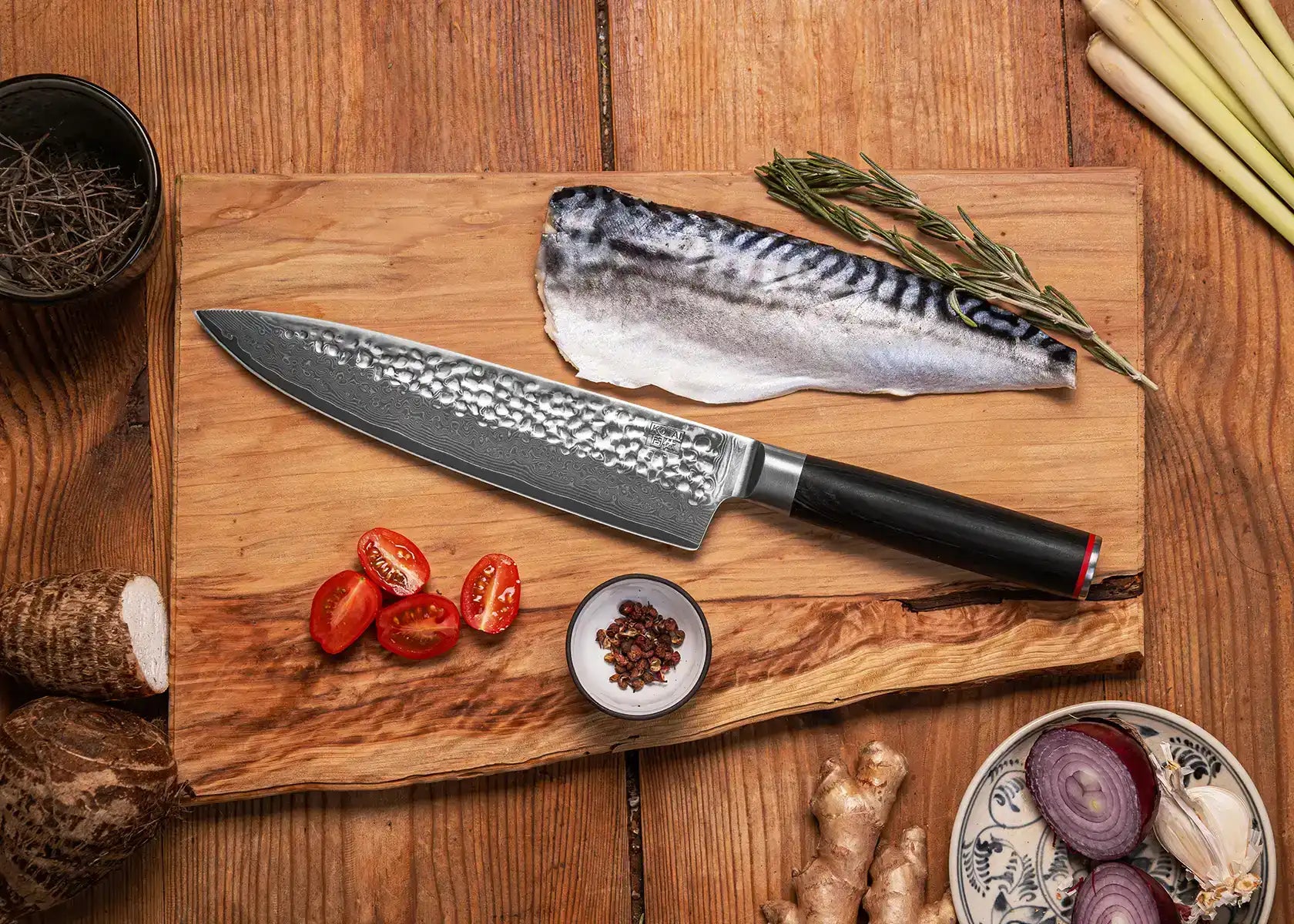In the fiercely competitive realm of professional cooking, having the right utensils can significantly influence your success. Among the elite kitchen tools are the premium Damascus knives, celebrated for their exceptional sharpness, remarkable durability, and stunning visual appeal. These knives have gained immense popularity among culinary professionals everywhere.
The allure of Damascus knives extends beyond their impressive performance; they also boast a fascinating history and intricate craftsmanship. For those dedicated to culinary arts, owning a set of these knives is not just practical but also akin to possessing a work of art. The mesmerizing patterns on their blades highlight the traditional forging methods that artisans have held dear for centuries.

The Rich History and Craftsmanship of Damascus Knives
The beginnings of Damascus steel can be traced back to the ancient city of Damascus in Syria, where this remarkable steel was first developed over a thousand years ago. The exceptional strength and resilience of Damascus steel garnered notable acclaim in antiquity. Its production methods were closely guarded secrets for generations, ensuring that the skill and artistry behind it were never lost.
Today, the revival of interest in Damascus steel has inspired many craftspeople to return to these traditional techniques, equipping modern chefs with knives that offer both outstanding performance and a rich historical narrative. You might want to delve into the history of Damascus steel to appreciate its significance further.
Advantages of Using Premium Damascus Knives in Professional Kitchens
Precision and control are absolutely vital when cooking at the highest standards, and Damascus knives excel in this aspect. The multi-layered construction provides extraordinary sharpness and excellent edge retention, making them perfect for meticulous and delicate tasks.
Additionally, Damascus knives are renowned for their exceptional balance and weight distribution, which is crucial for culinary professionals who spend long hours crafting exquisite dishes. These knives help alleviate fatigue and improve efficiency, allowing chefs to transition seamlessly between various cutting techniques, from slicing and dicing to mincing and chopping. For those wanting to expand their repertoire, check out tips on using a Nakiri knife.
Maintaining Your Premium Damascus Knives
While Damascus knives offer many advantages, they also require diligent care to sustain their beauty and functionality. Regular sharpening is vital to maintain the knife's edge, and its best to wash them by hand to prevent rust or tarnishing. Furthermore, opting for a proper storage solution, like a magnetic knife strip or a wooden block, can significantly extend the longevity of these exquisite tools, making sure they remain a fixture in your kitchen for years.
Selecting the Ideal Premium Damascus Knife for Your Kitchen
For professional chefs, choosing the right knife is of utmost importance. When selecting a premium Damascus knife, think about the tasks you commonly perform. A chef's knife with a wide blade may serve well for most culinary endeavors, while a paring knife is perfect for more intricate details. Exploring various styles and reputable brands can provide insight into making the best choice. For additional guidance, refer to insightful articles from MTech knife brand for making an informed decision.

FAQ Section: Common Questions About Premium Damascus Knives
What makes Damascus knives distinct?
The eye-catching wavy patterns on Damascus knives result from the layering and folding of different types of steel throughout the forging process, lending both beauty and exceptional performance to the knife.
How frequently should I sharpen my Damascus knife?
This largely depends on how often it's used, but regular honing after use and professional sharpening every few months are recommended to maintain peak performance.
Are all Damascus knives crafted from the same type of steel?
No, there is a variety of steel grades and types utilized in Damascus knives. Its advisable to research the different options available to select one that fits your culinary needs and preferences best.
This article contains affiliate links. We may earn a commission at no extra cost to you.


























